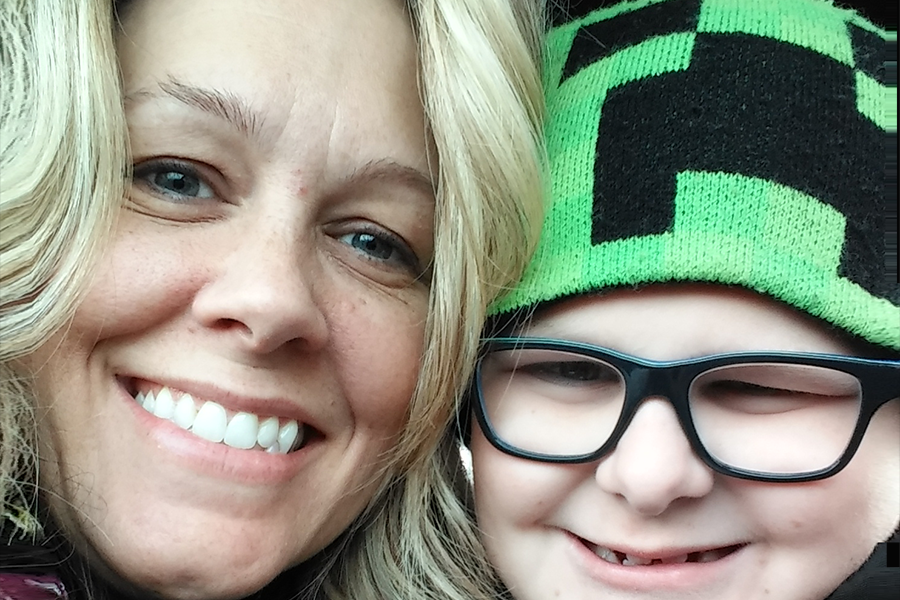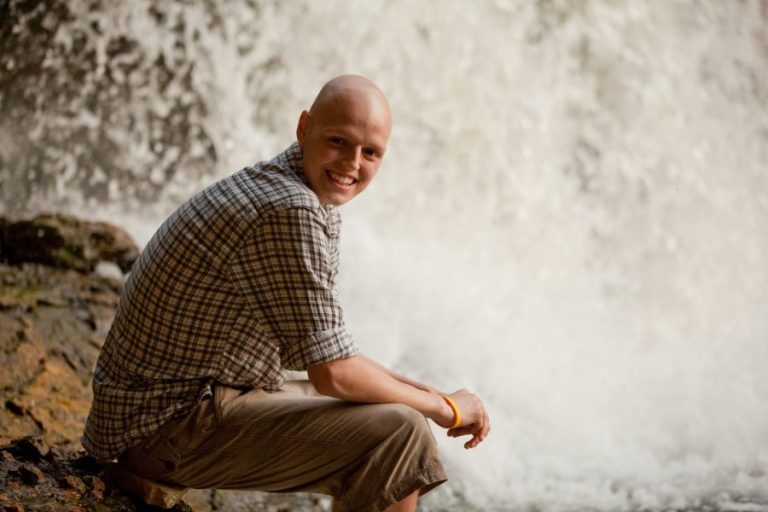I lay here next to my 9-year-old son in his hospital bed. I stay close. When the next seizure starts, I’ll be able to reach the round red alert button tucked safely in his pack and push it quickly. The pack carries nearly 30 electrode wires that transmit his brain activity – each wire is scrubbed and glued to his scalp. They have been glued and re-glued there for 4 days. He hasn’t asked, “When they will be taken off?” or “When are we going home?” Nor has he asked for gifts for his birthday – He turns 10 in four days. He only wants to know what we are going to do next, like in the next few minutes: Are we going to order food to our room? Are we going to watch a movie? Are we going to sleep for a bit? Are we going to call the nurse? Are we going to play a video game?
My mind wanders and begins to unravel. Where is he going to spend his 10th birthday? Are we still going to be in this hospital room? Or will we be at home gathered around our kitchen table? How many more seizures will he have today? Three or four, like yesterday and the months past or over 25 like last Sunday? How long will they last? Will they be under a minute with an interruption of whatever he was currently doing and a short rest needed? Will they be over 5 or 8 minutes, throwing his body to the ground as he gasps for air and words, requiring valium to get it to stop and hours upon hours of extra sleep. How tired he must be. His eyes are sunken with dark circles, his right eye droops more when he’s tired, is it drooping now? His body has been running a marathon for a year. His legs are heavy, he drags them when walking. What medication will they want to add next? How high will they want to increase the dose? Will they want to reduce ones he’s on already or stop them all together? How do the 24 pills a day make him feel? Will another new med even work? Will he ever stop having seizures? Is the next one starting? Does he miss his sister? Does he have a good life?
He pounds his fists on his bed rail, alerting us that another seizure is starting. My stomach sinks, my thoughts are brought to a halt, I urgently push the button, his nurses rush in. They stand only feet away as one looks at her watch to time his seizure and the other observes him. I stay tucked beside my son as he tries to reach his arms around me, watching him writhe and shake. I make sure he doesn’t hit his head. I need to see him breathing through it. I say over and over close to his ear and calmly, “You are doing great buddy, you are safe, I’ve got you, I love you.” My heart shatters, again. I am fighting tears. The lump in my throat swells and burns. Even though I’ve watched this happen to my son almost every day, multiple times a day for a year it NEVER gets any easier.
I don’t want to do this anymore. I want out. I don’t want to be inspired by him. I don’t want him to be my teacher any longer. I don’t want to witness suffering. I’d be lying if I said I’d never selfishly day dreamt about a different life. One that didn’t include life-threatening illnesses, burying children or holding onto each moment like it may be the last. A life where my biggest decision was what color to have my nails painted for the weekend. A life where my biggest fear was if my favorite restaurant could get in my 7 p.m. dinner reservation — one where I could carelessly ignore families in crisis. But I can’t and I won’t. That is not the life I was meant to have.
After several minutes the seizure begins to fade, and he tries to tell me he loves me back. The words are hard for him to get out. But, I know what he is saying. He lays his head softly on his pillow and lets out a big breath as I stroke his soft brown hair. I know he feels safe and I know he knows he is loved.
Here we are in this moment, and though in some moments I feel like I want out of this life, I trust anyway. I trust my gut instinct. I trust that I can keep making a difference. I trust that families will learn from us, that I can help them somehow. I trust that I will see the bigger picture one day. I trust that I am where I am supposed to be. I trust that this path is the most rewarding. I trust that a full life is better than an empty one. I trust that suffering leads to love.
Written by Mindy Dykes, Community Outreach Coordinator
My son was diagnosed at 6 weeks old with a brain tumor. It was massive and required emergency brain surgery and an aggressive plan to treat the remaining cancer cells. Connor made it through surgery, survived chemotherapy and a bone marrow transplant all before he was 7 months old. Now, ten years later, my husband and I are navigating survivorship late effects, raising his preteen sister and always striving to keep life in balance. My passion is to help other families on this journey and make a difference in the world of childhood cancer.




